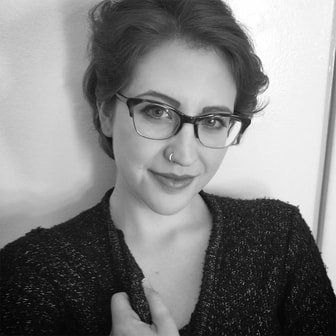Stone Angels: Painful Progress After the Millennium
Catherine Heiner
|
CATHERINE HEINER just completed her master’s degree in Literary and Cultural Studies at Carnegie Mellon University. This year she has presented research at the Comparative Drama Conference and the American Theatre in Higher Education conference in Boston, and participated in the KCACTF Region 8 festival as the production dramaturg for the University of Utah’s Eclipsed. Her work in dramaturgy has included productions of As You Like It, American Idiot, and The Wolves.
|
Abstract
With the recent revival and commercial success of Tony Kushner's Angels in America, we gain a new opportunity to examine and question our cultural history. As we move further from the era in which the play takes place, the ability to historicize the action becomes more stable and the narrative crystallizes within its context. However, categorizing Angels in America as an historical artifact to be analyzed also inhibits further development regarding our relationship with the past. Rather than tightly binding the play to the historical moment it depicts, perhaps an alternative approach lies in exploring the ideology it portrays, and using its structure to understand the cultural relationship between the contemporary moment and its interaction with the nearness of this history. This paper questions how historicism and formalism can interact with the structure and creation of Angels to produce relevant contemporary understanding for both audiences and practitioners as we imagine history, ideology, utopia, loss, and community.
With the recent revival and commercial success of Tony Kushner's Angels in America, we gain a new opportunity to examine and question our cultural history. As we move further from the era in which the play takes place, the ability to historicize the action becomes more stable and the narrative crystallizes within its context. However, categorizing Angels in America as an historical artifact to be analyzed also inhibits further development regarding our relationship with the past. Rather than tightly binding the play to the historical moment it depicts, perhaps an alternative approach lies in exploring the ideology it portrays, and using its structure to understand the cultural relationship between the contemporary moment and its interaction with the nearness of this history. This paper questions how historicism and formalism can interact with the structure and creation of Angels to produce relevant contemporary understanding for both audiences and practitioners as we imagine history, ideology, utopia, loss, and community.
| etudesdec2018heiner.pdf | |
| File Size: | 223 kb |
| File Type: | |


